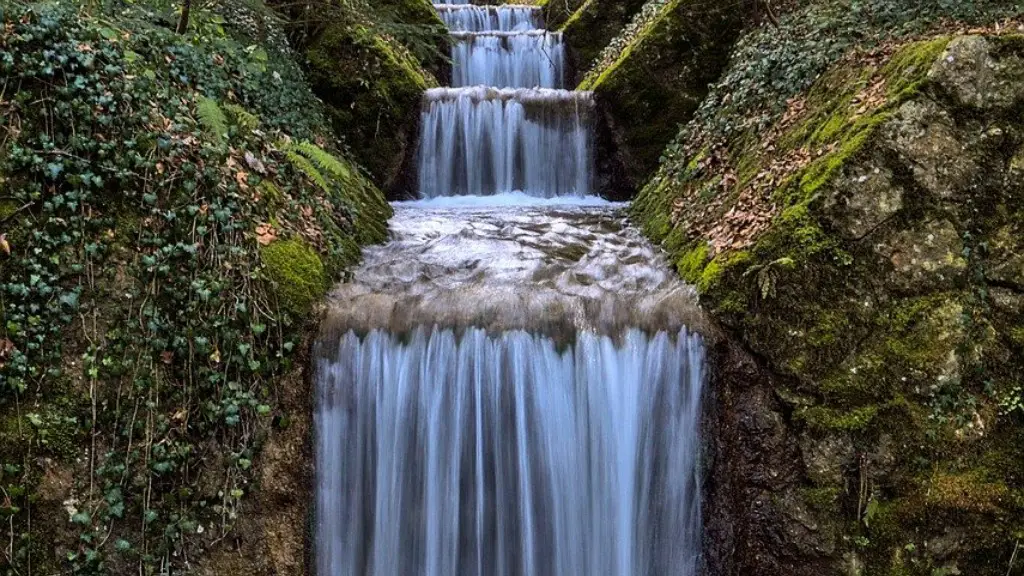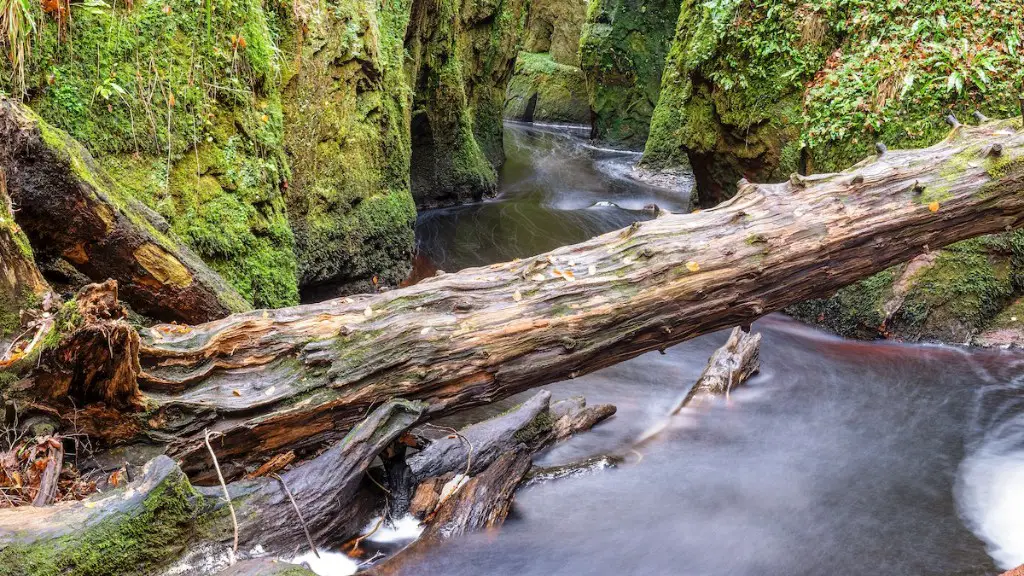Trade
The Mississippi River has long been a gateway for regional trade and in the process, it has facilitated the settlement of new areas. The indigenous tribes living close to the river were some of the first to benefit from the trade opportunities, as it allowed them to control access to resources and expand their influence to what is now the central United States. From trading in their surplus crops to providing access to new lands and markets, the Mississippi River helped create a more prosperous and better connected American continent.
With the arrival of the Europeans, the Mississippi River quickly became one of the most significant conduits of trade and communication in the New World. The French and Spanish particularly used the river to transport goods, to explore and settle new lands, and to bring Christianity to the region. Their presence in the Mississippi Valley attracted more settlers and encouraged more trade and economic activity. This in turn helped to form more settlements, and drew in more and more people to the area.
Transportation
The development of increasingly better modes of transportation on the Mississippi River, such as steamboats and barges, has made it far easier for people to move goods and individuals between different locations along the river. This had a dramatic effect on settlement patterns, as people now had access to markets, resources, and opportunities that had previously been unavailable. With improved transportation systems, settlements began to develop further along the river, and by the 19th century, cities such as St. Louis, New Orleans, and Memphis had emerged.
Throughout the 19th and 20th century, people continued to migrate to the region, whether for work opportunities or simply for a new life in the New World. This incoming population had an immense impact on the local economy, as new businesses began to sprout up along the Mississippi and help fuel the development of the region. The Mississippi River not only provided access to markets and resources but also new jobs and industry, thus further encouraging settlements and population growth.
Rise of Industry
The Mississippi River also played an important role in the industrialization of the United States. In the 19th century, numerous industries, from steel mills and shipyards to cotton gins, began to appear near the river, attracted by its abundance of natural resources and its location in the heart of the nation. This industrial activity brought more people to the area, and soon the region was bustling with new workers and entrepreneurs. The growth of industry also had a ripple effect on the settlements in the region, as the businesses created more economic opportunities and more people began to move to the river cities in search of employment and a better quality of life.
Agriculture
The Mississippi River is also closely associated with agriculture, which is an integral part of its history. The river has long provided water for irrigation of crops, and over the years, it has become an essential source for farmers and ranchers in the region. This has played a vital role in the settlement of the area, as the soil quality in the area is comparatively better due to the river’s contribution. Also, the river has provided the means for agricultural production on a larger scale, which in turn generated more income for the local population and enticed more people to relocate to the area.
Environmental Changes
The Mississippi River has also had a significant impact on the environment of the region. Over the course of its lengthy evolution, the river has shifted course numerous times, drastically altering the landscape and ecology of the region. The drastic environmental changes caused by the river have both created opportunities and presented a challenge to the settlements in the river valley. On the one hand, the new landscapes made the land more fertile and suitable for agriculture, while on the other they created a barrier to transportation and communication.
Tourism
In recent years, the Mississippi River has been increasingly utilized for tourism purposes. This trend has helped settle and revitalize certain areas, as it provides both a set of economic opportunities as well as an appealing lifestyle for people to enjoy. The riverfront cities have been especially revitalized, as visitors flock to them to enjoy the breathtaking views, numerous attractions, and unique culture. As a result, these towns have seen a rise in population and a boost to their economies, making them increasingly attractive places to settle down.
In addition to the development of settlements, the Mississippi River has been essential for navigation. The river’s shallow waters provide passage for barges, ships, and steamboats which are crucial for trade and transportation in the area. Furthermore, the various locks and dams built along its length help to regulate the flow of the river and make it more accessible to navigation. By increasing navigation opportunities, the river helped to open up more remote areas and facilitated the movement of people and goods around the region.
Infrastructure
The Mississippi River has also been an important source of infrastructure, as new dams, canals, and locks have been built to help regulate its flow and provide people with access to the river. This has allowed the region to become better connected, made transportation easier, and increased access to resources, helping to further solidify settlements in the area. The construction projects along the river have also helped to create jobs and stimulate the local economy, thereby boosting the region’s vitality.
Disease
Unfortunately, the settlements of the Mississippi River also faced a threat in the form of disease. The settlements which were located close to the river were particularly vulnerable to illnesses that were spread by mosquitos, such as malaria and yellow fever. The construction of the levees along the river were aimed at reducing the spread of such diseases, but even today the risks posed by disease remain a problem and a major concern among local authorities.
Conclusion
In conclusion, the Mississippi River has had a tremendous impact on the settlement of the region and continues to be a major driver of economic activity and cultural exchange. It has allowed people to access markets and resources, opened up new lands for development, and provided transportation and infrastructure to facilitate trade and communication. Despite some of the challenges posed by the river, such as the risk of contagion and the effects of changing environments, it remains an essential part of the settlement and growth of the Mississippi Valley.


